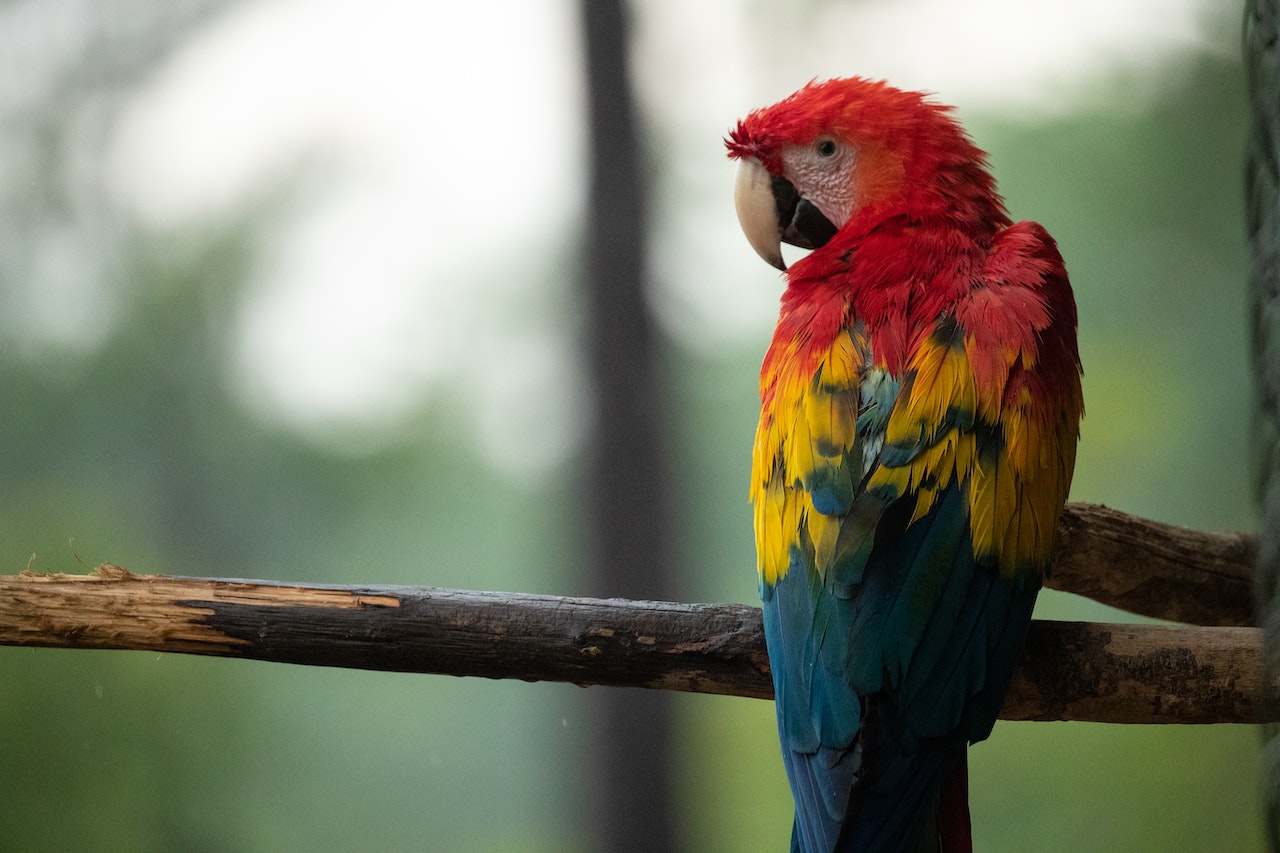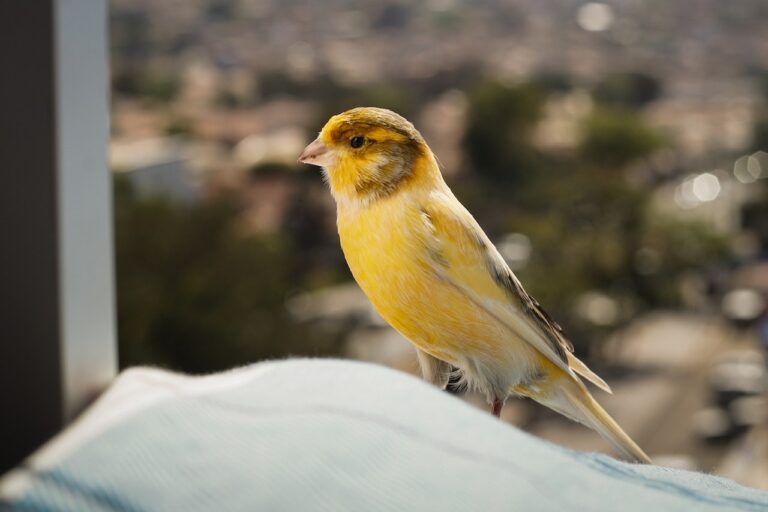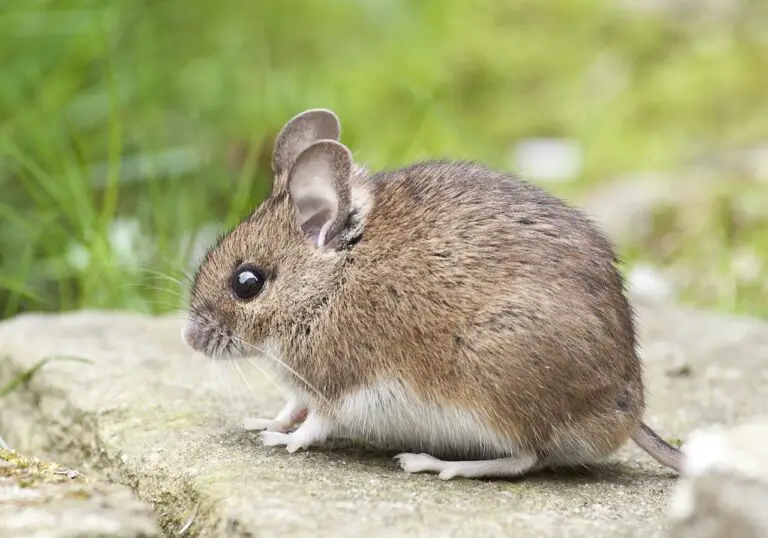The Pros and Cons of Owning a Parrot: A Comprehensive Guide
Owning a parrot can be an exciting and rewarding experience.
These intelligent and colorful birds have captivated humans for centuries with their ability to mimic speech and their engaging personalities.
However, before making the decision to bring a parrot into your life, it’s essential to consider both the pros and cons associated with parrot ownership.
In this detailed article, we will explore the various aspects of owning a parrot and help you make an informed decision.
Pros of Owning a Parrot
Parrots are known for their intelligence and social nature, which are among the top reasons why people choose to have them as pets.
These are some of the key benefits of owning a parrot:
1. Intelligent and Social Creatures
Parrots are brilliant animals and have the ability to learn and understand complex concepts.
They can form powerful bonds with their human companions and provide a sense of companionship and emotional support.
2. Companionship and Bonding
Parrots thrive on social interaction and can become loyal and affectionate companions.
These birds enjoy being part of a family and can form deep bonds with their owners.
3. Entertainment and Amusement
Parrots are natural entertainers and can provide endless hours of amusement with their playful antics.
Their vibrant colors and engaging behaviors can bring joy and laughter to your life.
4. Ability to Mimic Speech
One of the most fascinating aspects of parrots is their ability to mimic human speech.
Some species, such as the African Grey Parrot, are exceptionally skilled at imitating words and phrases.
This can lead to unique and entertaining conversations with your feathered friend.
5. Potential Health Benefits
Interacting with a parrot can have positive effects on your mental and emotional well-being.
Their presence can reduce stress levels and provide a sense of companionship, especially for individuals living alone.
6. Long Lifespan
Parrots are known for having long lifespans.
Depending on the species, parrots can live anywhere from 20 to 80 years or even longer with proper care.
This longevity allows for potentially lifelong companionship.
6. Varied Species and Colors
Parrots come in a wide range of species, each with its unique characteristics and stunning colors.
Whether you prefer the vibrant plumage of macaws or the elegant beauty of cockatoos, there is a parrot species to suit every individual’s preferences.
Cons of Owning a Parrot
While owning a parrot can be immensely rewarding, it is vital to be aware of the potential challenges and downsides.
Consider the following cons of owning a parrot:
1. Demanding Care and Attention
Parrots require a significant amount of care, attention, and interaction.
They thrive on mental stimulation and socialization, and neglecting these needs can lead to behavioral issues and unhappiness.
2. Noise Levels and Vocalization
Parrots are vocal creatures and can be pretty noisy.
They may squawk, scream, or mimic various sounds, which can be disruptive, especially in shared living spaces or apartments with noise restrictions.
3. Mess and Potential Destruction
Parrots are notorious for their messiness.
They can scatter food, shred toys, and produce feathers and dander.
Their powerful beaks can also cause damage to furniture, walls, and other household items if not provided with appropriate outlets for chewing.
4. Allergies and Health Concerns
Some individuals may be allergic to parrot feathers or dander, leading to respiratory issues or other allergic reactions.
Additionally, parrots can be susceptible to specific health conditions, such as feather plucking, beak overgrowth, and respiratory infections.
5. Lifelong Commitment
Parrots have long lifespans, which means that owning one is a long-term commitment.
It’s crucial to be prepared for the responsibility of caring for a parrot throughout its entire life, even when circumstances change or challenges arise.
6. Need for Proper Training and Socialization
Parrots require consistent training and socialization to develop good behavior and prevent behavioral problems.
Without proper guidance, they may exhibit aggression, excessive screaming, or other unwanted behaviors.
7. Legal and Ethical Considerations
Certain species of parrots are protected by law, and owning them may require permits or adherence to specific regulations.
It’s vital to research and understand the legal and ethical implications of owning a parrot, especially if considering rare or endangered species.
Factors to Consider Before Owning a Parrot
Before bringing a parrot into your home, it’s crucial to evaluate various factors to ensure a harmonious and fulfilling relationship.
Consider the following aspects:
- Time and Commitment – Parrots require daily interaction, mental stimulation, and socialization. Assess whether you have enough time to dedicate to your feathered friend and provide the attention they need.
- Financial Responsibility – Parrots can be costly pets. Expenses include the initial purchase or adoption fee, a spacious and appropriate cage, toys, high-quality food, regular veterinary care, and potential emergency expenses. Ensure that you can afford the financial commitment associated with parrot ownership.
- Living Arrangements and Space – Consider the living environment in which you intend to keep a parrot. Parrots require spacious cages that allow for ample movement, as well as a safe and stimulating environment outside the cage for supervised playtime.
- Allergies and Health Conditions – Determine whether you or any household members have allergies or health conditions that could be exacerbated by parrot feathers or dander. It’s essential to prioritize the well-being and health of everyone in the household.
- Lifestyle Compatibility – Evaluate your lifestyle and daily routine to ensure that it aligns with the needs of a parrot. Parrots thrive in environments with consistent schedules, regular social interaction, and mental stimulation.
Tips for Responsible Parrot Ownership
To ensure a positive and fulfilling experience as a parrot owner, follow these tips for responsible parrot ownership:
- Providing a Suitable Cage and Environment – Invest in a spacious and sturdy cage that allows for comfortable movement and includes perches, toys, and mental enrichment activities. Create a fitting environment that mimics the natural habitat of a parrot.
- Balanced Diet and Nutrition – Offer a diverse and nutritionally balanced diet consisting of high-quality parrot pellets, fresh fruits, vegetables, and occasional treats. Consult with a veterinarian or avian nutritionist to determine the specific dietary requirements of your parrot species.
- Regular Veterinary Care – Schedule regular check-ups with an avian veterinarian to monitor your parrot’s health, address any potential issues early on, and receive guidance on proper care, nutrition, and vaccinations.
- Mental Stimulation and Enrichment – Engage your parrot’s mind through interactive toys, puzzles, foraging activities, and training sessions. Rotate toys regularly to prevent boredom and provide a stimulating environment.
- Socialization and Interaction – Spend quality time with your parrot daily. Engage in interactive play, offer physical contact such as gentle scratches or petting (if your parrot enjoys it), and involve them in family activities whenever possible.
- Positive Reinforcement Training – Use positive reinforcement techniques, such as rewards, treats, and praise, to train your parrot and reinforce desired behaviors. Avoid punishment or harsh training methods, as they can be counterproductive and harmful to the bond between you and your parrot.
- Being Prepared for the Unexpected – Educate yourself about common health issues and emergencies that can arise with parrots. Have a plan in place in case of unexpected situations, such as finding a qualified avian veterinarian, knowing the nearest 24/7 emergency avian clinic, and having an emergency contact list for avian experts.
Conclusion
Owning a parrot can bring joy, companionship, and entertainment into your life.
However, it’s important to weigh the pros and cons before making the decision.
Parrots require a significant commitment of time, care, and resources, but they can offer a unique and rewarding bond.
By considering the factors discussed in this article and following responsible ownership practices, you can create a loving and enriching environment for your feathered friend.
FAQs
How long do parrots usually live?
Parrots can live anywhere from 20 to 80 years or even longer, depending on the species and proper care provided.
Are parrots good pets for apartments?
While parrots can be kept in apartments, their noise levels and space requirements should be carefully considered.
Some species may be more suitable than others for apartment living.
Can parrots be trained to do tricks?
Yes, parrots are highly intelligent and can be trained to perform a variety of tricks and behaviors through positive reinforcement training methods.
Do parrots need constant attention?
Parrots require daily interaction and mental stimulation.
While they appreciate socialization, they can also entertain themselves to some extent.
What are some common health issues in parrots?
Common health issues in parrots include feather plucking, respiratory infections, nutritional deficiencies, beak and nail overgrowth, and obesity.
Regular veterinary care and a proper diet can help prevent and address these issues.
Can parrots be potty trained?
Parrots cannot be fully potty trained like dogs or cats.
However, with consistent training, they can be taught to use a designated area for elimination, which can help minimize mess.
Do parrots require companionship?
Parrots are social creatures and thrive on social interaction.
While some species can be content as a single pet with human companionship, others may benefit from having a parrot companion or regular interaction with their human family.
Can parrots be left alone for long periods?
Parrots are highly social and intelligent animals that require daily interaction and mental stimulation.
Leaving them alone for extended periods, such as hours or days, can lead to loneliness, boredom, and potential behavior issues.
Are there any legal restrictions on owning certain parrot species?
Yes, some parrot species are protected under national or international laws due to conservation efforts.
It is essential to research and comply with local regulations regarding the ownership of specific parrot species.
Are there any alternative pets similar to parrots?
Birds such as cockatiels, budgies, and lovebirds share some traits with parrots and can make suitable alternatives for those who may be unable to commit to the needs of larger parrot species.
Peter Stones is the founder of Exotic Pets Place, the leading online resource for exotic pet care information.
With over 10 years of hands-on exotic pet ownership experience, he is deeply passionate about sharing his expertise to help others properly care for their unusual pets.
When he's not writing extensively researched articles or connecting with fellow exotic pet enthusiasts worldwide, you can find Peter at home tending to his own beloved menagerie of exotic animals.







